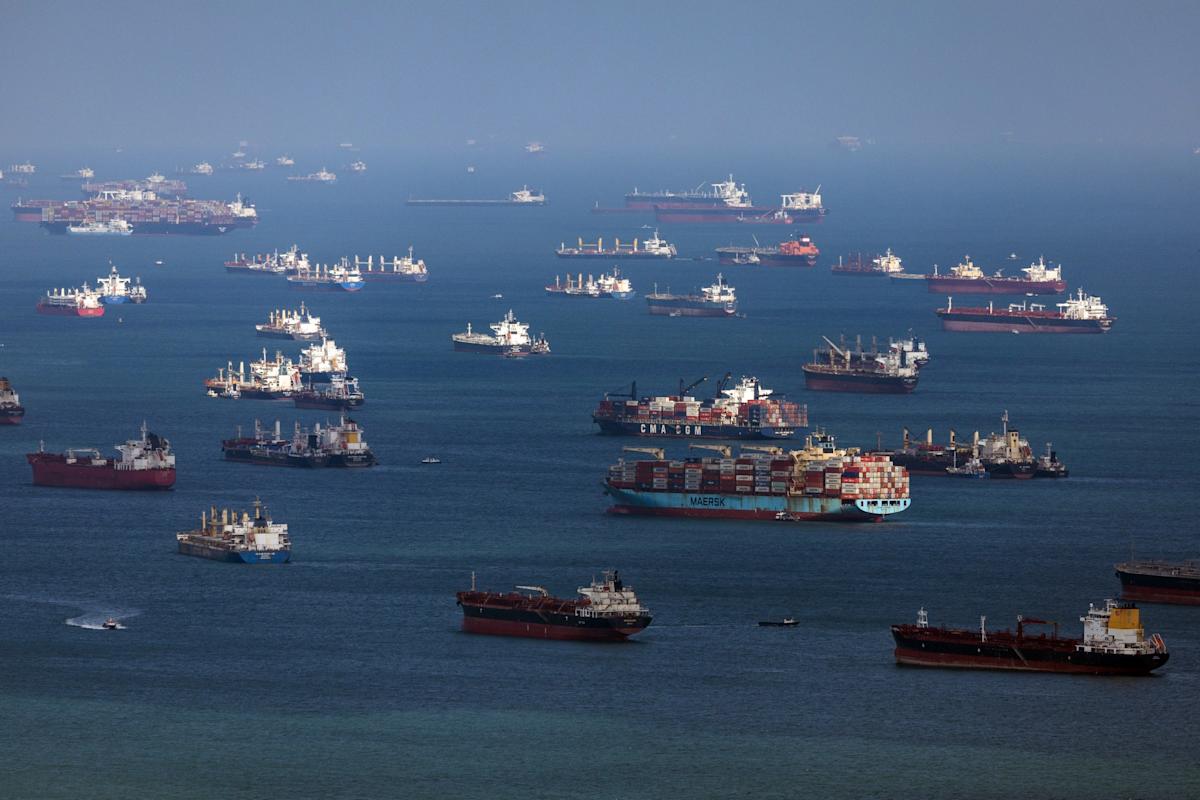Shipping Emissions Charge Vote Delayed Amid US Pressure

The International Maritime Organization (IMO) has postponed a crucial vote on implementing a global charge for shipping emissions, a decision that underscores the influence of the Trump administration on international climate negotiations. This delay comes just weeks before the COP30 climate summit in Brazil and represents a significant setback for global environmental regulations aimed at reducing greenhouse gas emissions from the maritime industry.
Setback for Global Climate Initiatives
During a recent meeting in London, countries convened to discuss the introduction of a charge on the over 1 billion tons of greenhouse gases emitted annually by ships. However, on Friday, the IMO voted to delay this decision for one year, following a proposal from Saudi Arabia. Industry experts had anticipated that the regulations would pass, given their extensive development over the years. The proposed charge was expected to generate over $10 billion annually and facilitate a transition away from oil as the primary fuel for shipping, paving the way for cleaner alternatives like ammonia.
Despite initial international support for the charge back in April, the dynamics shifted as the US intensified its opposition. President Trump expressed his outrage over the planned vote, labeling it a “global carbon tax” that could have dire economic consequences. The European Union, which has already integrated shipping into its carbon market, was unable to rally sufficient support to push the tax through. Poland’s deputy climate minister, Krzysztof Bolesta, remarked that the decision to postpone the vote illustrates the need for broader cooperation beyond European leadership in climate discussions.
The International Chamber of Shipping, representing over 80% of the global fleet, expressed disappointment over the outcome, emphasizing that the uncertainty surrounding the charge jeopardizes necessary investments for a cleaner maritime sector. Vanuatu’s climate change minister, Ralph Regenvanu, criticized the IMO for failing to take decisive action against climate change.
US Influence and Future Implications
The delay in the vote highlights the significant impact of US pressure on international climate policy. The Trump administration has actively opposed the emissions charges, warning of potential economic repercussions and suggesting that shipping costs could rise by more than 10%. The State Department indicated it would consider various measures, including port levies and sanctions, to deter support for the regulations. Trump firmly stated that the US would not comply with the carbon tax in any form, framing the postponement as a victory for American interests.
A Global Carbon Tax on Shipping is Coming, Says ABS Chairman and CEO
As the week progressed, tensions among countries escalated, with nations like Singapore and Saudi Arabia advocating for the delay. Countries that had previously supported the charge, including China, Greece, India, and Panama, either voted to postpone the decision or abstained. This shift in support raises questions about the future of the proposed charge, as the vote for a delay allowed more countries to participate than would have been permitted in the actual vote on the tax.
The failure to adopt the emissions charge reflects ongoing challenges in international climate diplomacy. The maritime industry, responsible for over 1% of global emissions and a significant portion of world trade, faces increased difficulty in achieving net-zero emissions by mid-century. The International Chamber of Shipping’s Secretary General, Thomas Kazakos, expressed disappointment over the lack of consensus among member states, emphasizing the need for clarity to facilitate investments in decarbonizing the maritime sector.
